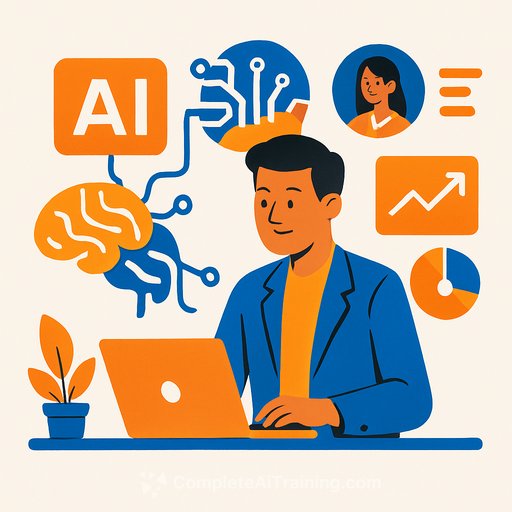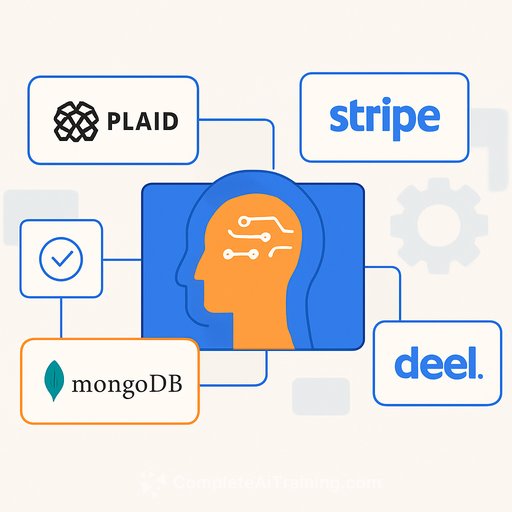AI Appreciation Day: What Gives Marketers in APAC the Competitive Edge?
The 'What’s NEXT in Marketing 2025' series is making a strong impact across Singapore, the Philippines, Hong Kong, Indonesia, and Malaysia. It brings together brand, technology, retail, marketing, and data leaders across the APAC region to discuss the emerging trends, challenges, and opportunities AI offers. The message is clear: it’s time for marketers to embrace innovation to stay competitive.
Marketers Experimenting with AI and Generative AI
Generative AI tools like ChatGPT, which now generates over one billion searches daily, have become an integral part of both consumer and professional lives. According to the Digital, Marketing & eComm in Focus 2025 report by Arktic Fox and Six Degrees Executive, 59% of brands are experimenting with or scaling AI efforts to enhance personalization.
- 50% of brands are trying GenAI for content generation, with 24% scaling up.
- 49% are experimenting with AI for insights, while 19% are expanding these efforts.
- Only 13% believe their organizations are advanced in predictive analytics, mostly those with revenues over $100 million.
However, many brands face obstacles such as fragmented customer data. Only 14% have a mature, unified customer view, which limits AI’s effectiveness in personalization and experience delivery.
Balancing Customer Loyalty, Personalization, and Data Usage
Research from The Australian Loyalty Association (ALA) shows a tension between customers' comfort with data use and brands’ personalization expectations. Nearly half (46%) expect brands to know their preferences, yet 53% worry about data volume held by loyalty programs.
- 58% are willing to share data for more relevant offers.
- 75% prefer email communication; only 35% accept texts, with 68% wanting SMS limited to urgent updates.
ALA emphasizes that AI is reshaping loyalty programs by speeding up processes, improving personalization, and aiding strategic decisions. The upcoming 2025 Asia Pacific Loyalty Conference will focus heavily on retail AI, personalization, and customer loyalty.
Fixing Fragmented Customer Data with AI
Fragmented and low-quality customer data has long hindered marketing efforts. AI is changing this by accurately unifying data through identity resolution. Billy Loizou from Amperity explains that AI detects patterns across billions of records faster and more precisely than traditional methods.
AI also improves data quality by identifying inconsistencies and adapting to behavioral changes. Amperity’s new AI tools—Identity Resolution Agent and Chuck Data—help enterprises unify customer records and accelerate insights without manual coding.
By linking data from disconnected systems, AI enables real-time personalization by matching customer signals instantly, not days later.
Deeper Customer Data Insights in Advertising
Nexxen, an advertising technology platform, recently introduced nexAI, a generative AI enhancement to their data platform. This tool transforms complex consumer data into clear audience profiles and campaign plans quickly.
Karim Rayes, Nexxen’s chief product officer, highlights that nexAI removes friction from workflows, allowing advertisers and agencies to move faster from insights to activation with confidence.
Helping Marketers Step Off the ‘Technical Treadmill’
AI assistants from Google, Meta, and others are changing how consumers interact with brands, creating new opportunities for creative marketing. Microsoft reports that AI assistant Copilot accelerates purchase journeys by about 30%, while integrations like OpenAI with Shopify embed commerce directly into conversations.
Sangeeta Mudnal of Glu.ai explains that AI is shifting how creative work is produced and optimized. Glu.ai’s AI tools automate tasks like asset tagging and bulk resizing, freeing marketers to focus on crafting distinctive brand voices rather than technical formatting.
Adopting AI-powered creative platforms lets marketers build operational speed and scale, putting them ahead of others still wrestling with platform-specific challenges.
From Traditional SEO to Generative Engine Optimisation (GEO)
The rise of AI-powered language models is changing how brands appear in search and discovery. Marty Hungerford from BRX describes this as generative engine optimisation (GEO), where brands optimize content for AI-generated responses rather than traditional search rankings.
Brands that don’t adapt risk losing visibility in AI-driven discovery, which directly impacts customer acquisition and relevance. By updating content, enhancing structured data, and embedding in trusted ecosystems, brands can gain a lasting advantage.
Partnering with experts in GEO can speed up progress in this evolving area, ensuring brands remain visible where AI mediates customer discovery.
Measuring Real Marketing Returns from AI
Retail tech platform Eagle Eye notes that AI has reached a point where marketers can measure actual returns instead of just discussing potential. Cédric Chéreau emphasizes AI’s role in delivering one-to-one offers based on individual shopper behavior, timing, and preferred channels.
Aaron Crowe from Eagle Eye stresses that AI should augment human expertise, not replace it, and highlights the need for ethical data handling through consent and privacy controls.
AI also enables dynamic pricing by analyzing multiple real-time factors to balance revenue, margins, and customer satisfaction.
Jonathan Reeve, also from Eagle Eye, reflects on how AI and automation may reshape professional roles, encouraging marketers to rethink the problems they solve and how to stay valuable in a changing environment.
For marketers eager to enhance their AI skills and stay ahead, exploring targeted AI courses can provide practical knowledge and tools. Check out Complete AI Training for marketing-focused AI courses that help build relevant expertise.
Your membership also unlocks:






